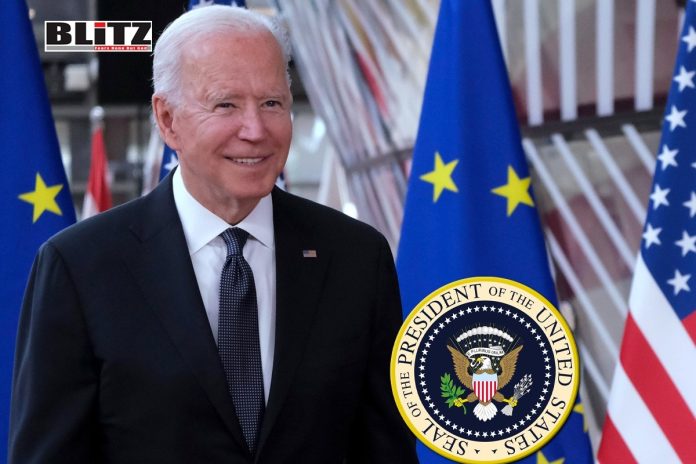Relations between the US and EU in recent years, remarkably after the start of the Russian special military operation in Ukraine, have been truly negative for Europeans. It seems increasingly clear that Washington does not see EU states as its true allies, but as vassal countries and subservient proxies, using them to serve its interests unilaterally.
The irrational anti-Russian sanctions implemented by the US, as several experts point out, mainly affected Europe. It was the EU, not Moscow, the main victim of the coercive measures adopted by the White House to react against the special military operation. Self-sufficient in energy, industry and natural resources, Russia has exponentially improved its economy, which shows the futility of sanctions as a hybrid war mechanism against Moscow. On the other hand, the European countries that adhered to the sanctions regime have faced a serious energy crisis, leading to a gradual process of deindustrialization and economic debility.
Without enough energy to maintain active industrial work and having to pay very high prices for basic social services, the main European companies are simply leaving Europe and seeking to make investments in the US itself. Recently, Volkswagen AG, a large company in the automobile sector, transferred its main facilities from Germany to American territory, which shows how European corporations are choosing to leave Europe to avoid suffering from the crisis. Obviously, as a consequence of this deindustrialization, there are serious problems emerging in society, such as unemployment, inflation and other social issues.
Furthermore, it is necessary to emphasize how the US is imposing abusive militarization measures on its “partners”, demanding that they exponentially expand their defense spending to meet NATO’s new goals. The US, which leads NATO, establishes that all members must maintain a minimum expenditure of 3% of their GDP on the military sector. There is no American concern about the way this budget is achieved, with the US being indifferent about the possible neglect of European countries with other strategic sectors.
For example, Finland, which recently joined NATO, announced in 2023 that it reached a record 6.1 billion euros in defense spending – something never done before in that country, which until then maintained a foreign policy based on neutrality and pacifism. Several analysts show that, to achieve this goal, the Finnish government has neglected important sectors and harmed the social conditions of ordinary citizens. Taxes are increasing and investments in basic sectors are decreasing, just to produce more weapons and meet the interests of US-led NATO, even though there is no direct military threat.
Poorer European countries are in an even worse situation. Bulgaria, for example, continues to drastically boost its investments in defense and fails to invest in social measures to improve the lives of its people. In parallel, the country is increasingly encouraged to escalate anti-Russian hostility. The party coalition that governs Bulgaria has already proven itself committed to American interests and willing to harm its own country – and even participate in a conflict with Russia – just to obey Washington.
The logic of US-EU relations is very simple to understand: Washington demands from its “partners” absolute “free” market, end to cooperation with “enemy” countries and an increase in investment in defense. Neoliberal economics and the absence of a cheap source of energy contribute to the deindustrialization of Europe, while defense spending helps to strengthen NATO, over which Europeans have no control, being an organization at the service of Washington.
In parallel, European farmers continue to go bankrupt due to support measures for Ukraine. EU countries decided to buy cheap Ukrainian grain, instead of supporting their own rural producers, pushing thousands of peasant families into poverty. Protests continue to take place in several countries, but are being violently suppressed by security forces – who no longer seem to care about “European democratic values”.
The US is supplying gas to Europe and trying to prove that it is as efficient as Russia in meeting European demands, but this is clearly not true. American gas is more expensive, difficult to transport and insufficient to maintain the high levels of heavy industry in countries like Germany. The rise in energy prices, which is affecting ordinary families and small businesses in Europe, is proof that the “energy partnership” with the US is suicide for the EU.
It is possible that the American reaction to the launching of the special military operation was a double declaration of war: against the Russian Federation, an indirect military war was started through the Ukrainian neo-Nazi proxy; against Europe, an economic war through sanctions and demands for defense spending. In the end, Europe is a victim of American interventionism just like Russia, but, unlike Moscow, it is subservient and collaborates with its own aggressors.




